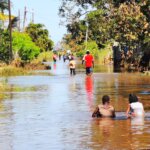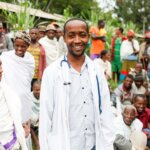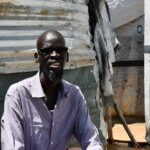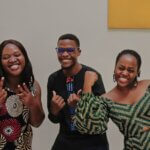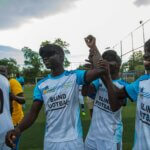- General
- Disability Rights
With the United Nations climate talks – COP27 – underway in Egypt, our Disability Inclusion Advisor, Ambrose Murangira, tells us why people with disabilities must have a seat at the table.
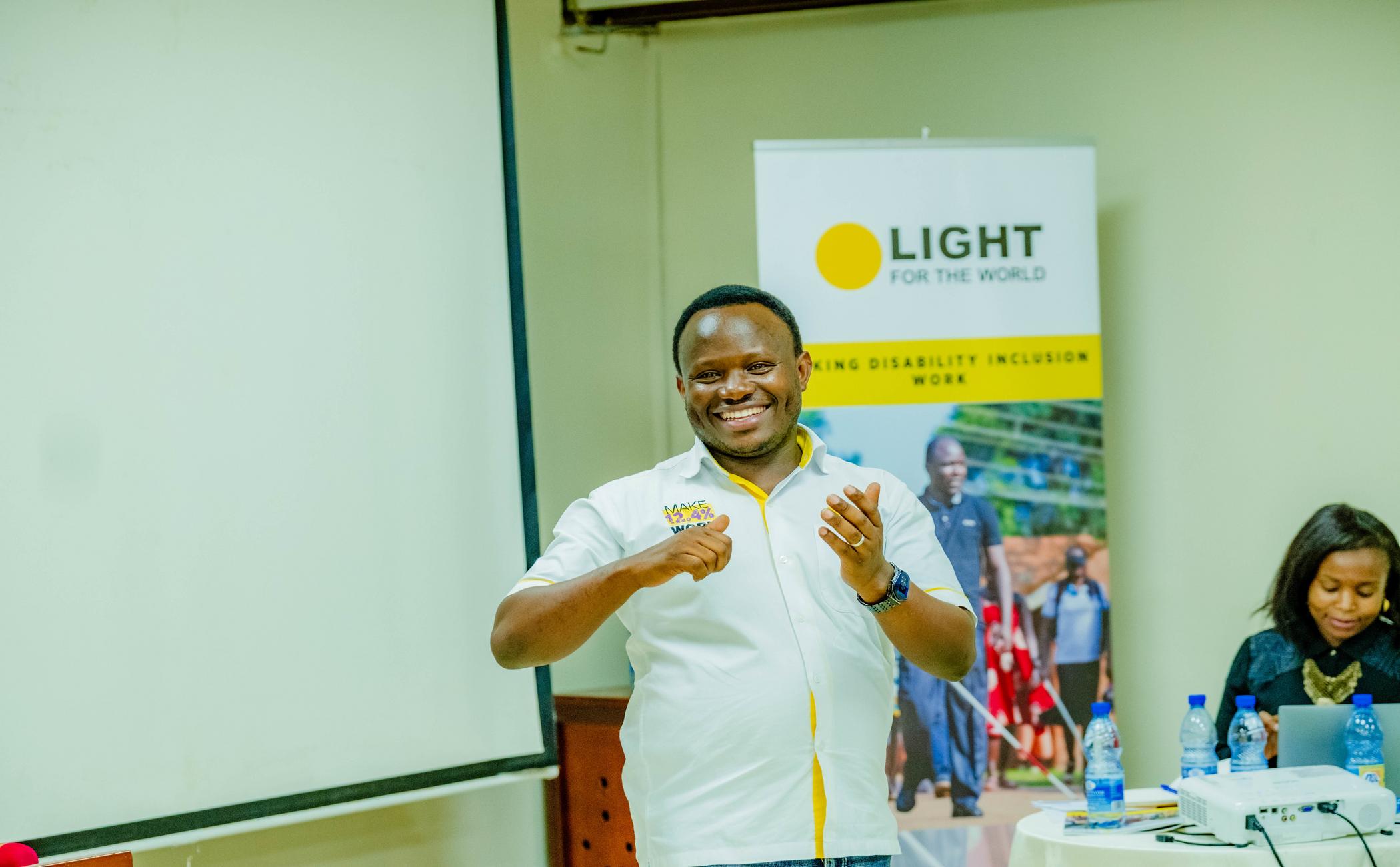
Climate change affects us all, but not equally. Fifteen percent of the world’s population (19.2% of all women and 12% of all men) have a disability. Of them, 80% live in low-income countries, many of which are in Africa. The continent is among the most affected by the climate crisis, yet least responsible for creating it.
In other words, people with disabilities in low-income countries are facing the harshest effects of climate change while having the fewest resources to tackle it. Weather extremes are increasing, destroying housing, infrastructure and crops, thus depriving people of their livelihoods and driving them deeper into poverty. Ultimately, climate change – longer dry seasons, water shortages, stronger winds – also affects people’s health, including eye health, and extreme weather events can increase impairments.
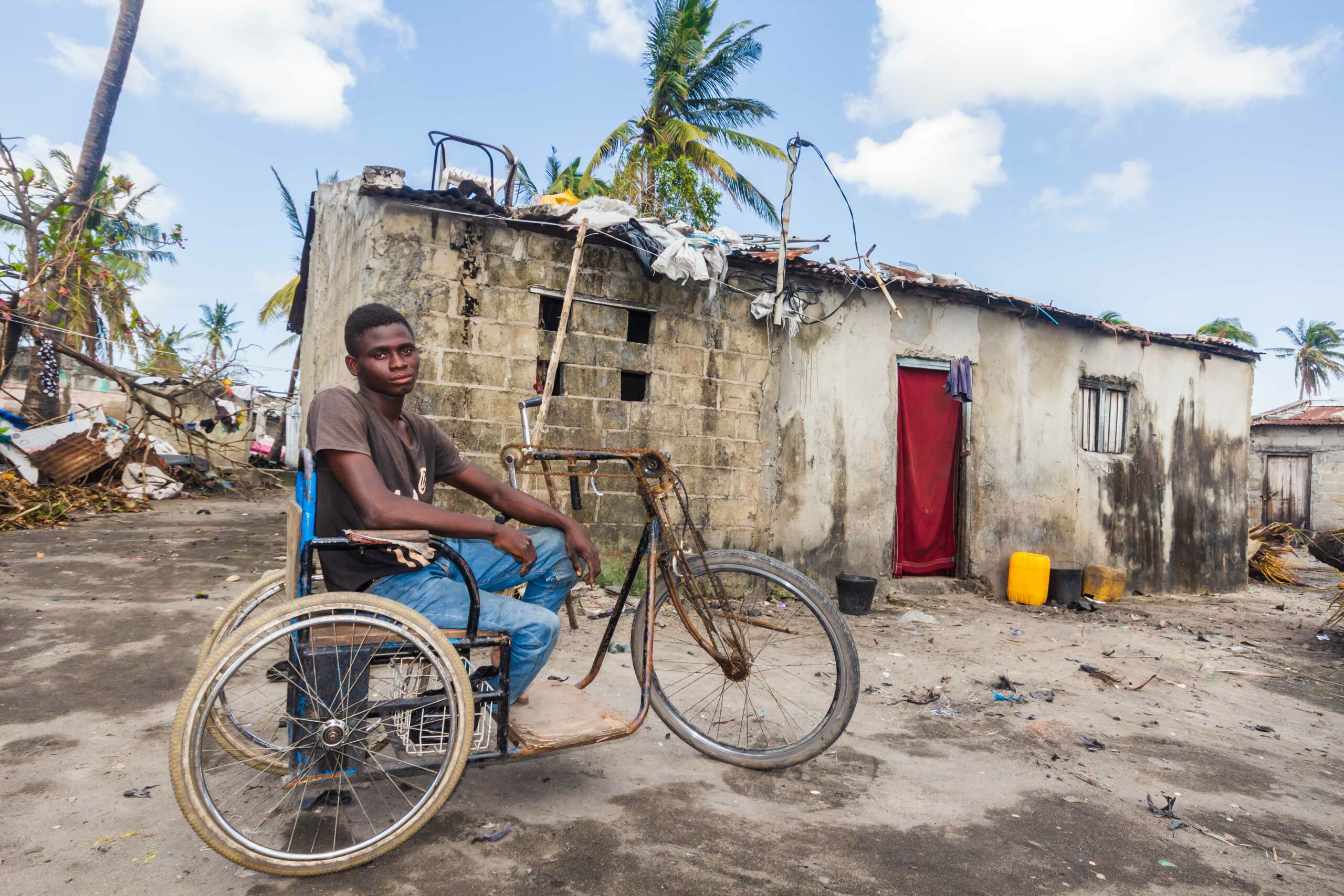
Inclusion in climate action plans
Given the huge impact that climate change is having on the lives of people with disabilities, it’s disappointing that it’s taken so long to include us in international climate talks. It was just last year, 2021, that people with disabilities, namely the International Disability Alliance – a network of organisations of people with disabilities and their families – were given space to co-organise a side event on the intersection between disability and climate change at the UN climate talks for the first time ever.
People with disabilities have been excluded from climate debates for the past 30 years, which contradicts the Sustainable Development Agenda‘s principle of leaving no one behind, and the Disability Movement’s motto: “Nothing about us without us”.
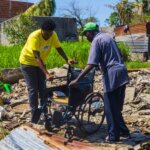
At Light for the World, we want to ensure that people with disabilities are included in the development of all climate change policies and programmes.
Only 35 out of 192 governments that signed up to the Paris Agreement, a legally binding international climate treaty, currently refer to people with disabilities in their adaptation plans aimed at keeping the global rise in temperatures to a maximum of 1.5 degrees Celsius. And although Ethiopia and Uganda initially included people with disabilities in their plans, they subsequently removed mention of them – a disappointing step backwards for disability inclusion in climate action.
Light for the World at COP27
COP27 is the pinnacle of global climate policymaking. Journalists, social justice movements and influencers from all trades are there, reporting on it. We have had isolated conferences on disability inclusion and climate change. But – until 2021 – not at this level. Light for the World and our partners need to be present, visible and loud at COP27 to make sure heads of state, ministers, opinion leaders and NGOs can no longer ignore people with disabilities.
This year, we’re joining forces with the Disability Movement and international Non-Governmental Organisations (NGOs) working globally for an inclusive society. One area that we’re highlighting is the SPARK programme. Since 2021, Light for the World has been working with the International Fund for Agricultural Development (IFAD) to spark disability inclusion in rural transformation, with a specific focus on environmental sustainability and climate adaptation.
SPARK’s ethos is putting people with disabilities in the lead – we capitalise on their lived experiences. To transform these lived experiences into technical expertise, we expanded our Disability Inclusion Academy to four countries of implementation: Burkina Faso, Mozambique, Malawi and India.
The Disability Inclusion Academy – a fellowship of 3-6 months – trains women and men with disabilities on the ‘HOW’ of inclusion. Graduates are called Disability Inclusion Facilitators (DIFs) whose key role is to support mainstream organisations and companies to be inclusive.
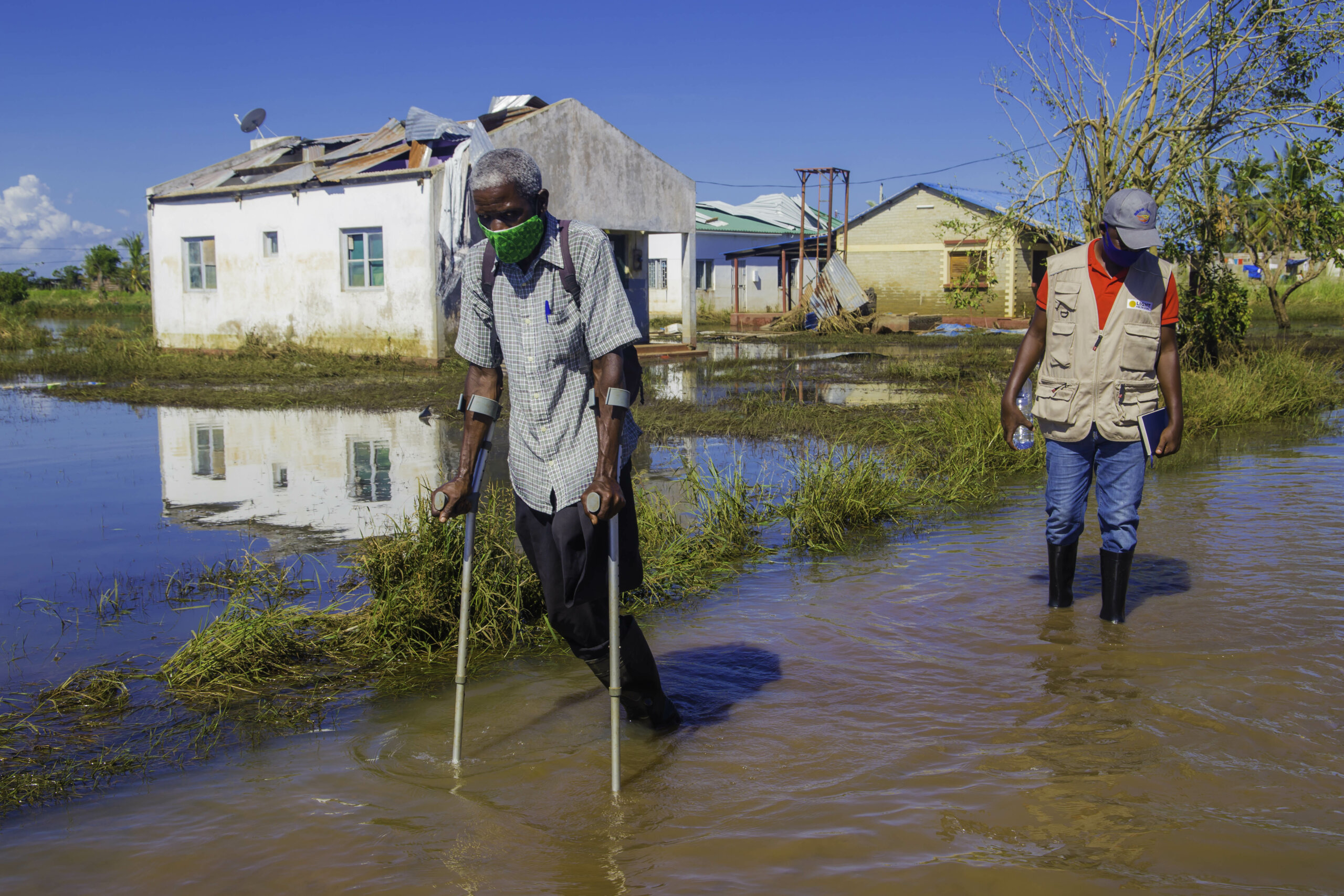
DIFs are inclusion experts, not just in terms of business and enterprise, but also in making sure mitigation and adaptation techniques in the face of the climate crisis are accessible to all. Given that people with disabilities weather the worst effects of climate change, they are best placed to know how to adapt these techniques to make them more inclusive and accessible.
People with disabilities must have their say
In the coming years, the climate crisis will shape the political agenda. People with disabilities need to have a seat, their say, and a vote as experts in all discussions on climate action. So far this has not happened, but at the same time the impact of the climate crisis hits people with disabilities particularly hard.
Evidence has shown that once people with disabilities are meaningfully included in such programmes, economic cost is minimised. The International Labor Organisation (ILO) estimates the social and economic losses caused by exclusion to be between 3 and 7 percent of low- and middle-income countries’ Gross Domestic Product. In short, we have a lot to gain from listening to – and acting on – the advice of people with disabilities: our planet depends on it.
